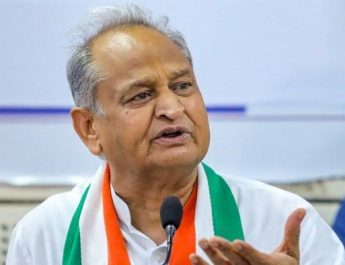From Our Bureau
NEW DELHI: No consensus among states on whi is a minority, the Centre tells the Supreme Court.
Its affidavit came in response to a pending PIL which claimed that the non-compliance with 2002 SC rykubg gas “kept Hindus from availing the rights of minority.”
It got varied responses from 24 states and six union territories on whether minorities should be notified at state or national level.
The PIL, filed in 2020, has sought a direction to enforce the 2002 T.M.A. Pai Foundation vs State of Karnataka ruling by the Supreme Court, which had held that under the Constitution’s Article 30 — which deals with the rights of minorities to establish and administer minority institutions — religious and linguistic minorities will have to be identified at the state level.
The T.M.A. Pai verdict was a landmark 11-judge order holding that under Article 30 of the Constitution deals with the rights of minorities to establish and administer minority institutions — religious and linguistic minorities will have to be identified at the state level. It laid down the contours of the government regulations on private institutions.
“Non-compliance of this judgment has kept Hindus from availing the rights of a minority in those states where they are lesser in number,” the PIL stated, adding that “the Centre is not empowered to notify minorities under the National Minorities Commission Act, 1992”.
According to the Union government, three major BJP-ruled states, Gujarat, Karnataka and Madhya Pradesh, want the current system of identifying and notifying minorities at the national level to continue, while Assam and Uttarakhand have contended that the unit of identification of minorities should be the state, as held in the T.M.A. Pai ruling.
Delhi is the only state that has mooted the idea of a separate category of “migrated minority status” that would be given to those Hindus who are a minority in their state of origin, but are now residing in the Capital after migration, according to the Union government’s affidavit.
The UTs have not taken any stand and said in the response that since they do not have an elected legislature, they would go by the stand taken by it. Puducherry, however, said Hindus are in the majority and it has no followers of Judaism or Bahaism.
The Union government received responses from the states during deliberations it held in the past two months to seek their views on the PIL.
Four states, Arunachal Pradesh, Rajasthan, Telangana and Jharkhand, and two UTs, Jammu & Kashmir and Lakshadweep, are yet to take a stand on the issue.
So far, the Ministry of Minority Affairs has filed a counter affidavit in the matter and has put the onus of granting minority status to Hindus upon states, saying even they have the power to declare a group as minority.
However, after filing of the affidavit, the Union government has been taking time to file a consolidated response to the PIL, claiming it needs to consult the states and other central government departments on the case.
###





